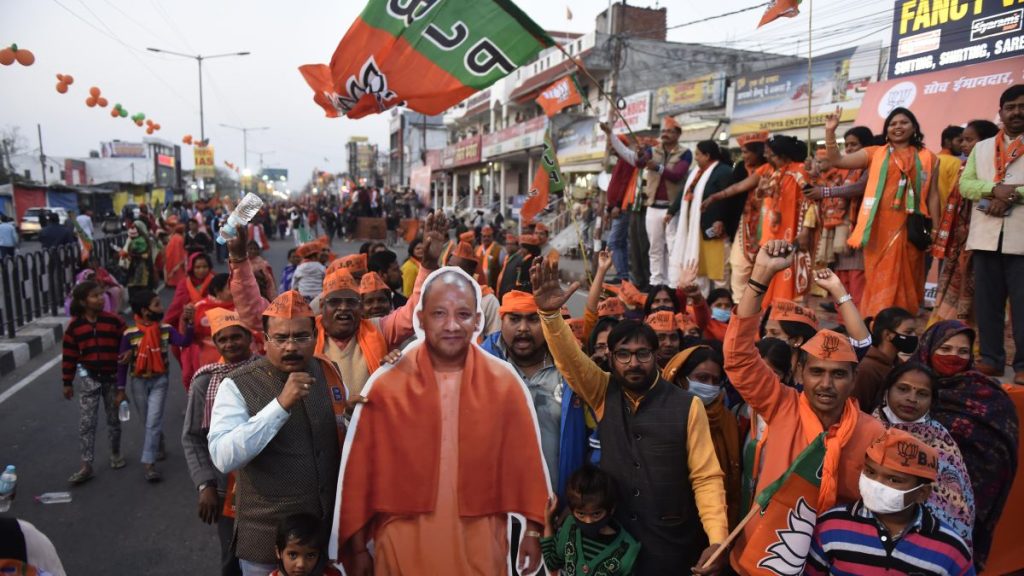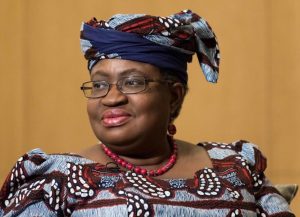An election in India’s most populous state pits Covid-19 anger against Hindu nationalism

The social worker said he didn’t wear a mask or gloves as he gave funeral rites for more than 200 Covid victims on the banks of the sacred River Sarayu in northern Uttar Pradesh state — it wouldn’t have been what God wanted, he said. “Those months were really devastating,” he added.But he doesn’t blame the state’s ruling Bharatiya Janata Party (BJP) for the Covid outbreak that many say was worsened by a slow government response — and it didn’t cost the party his vote in the state elections, which reports results on March 10.Voters will decide if the state’s controversial monk-turned-chief minister, Yogi Adityanath, remains the leader of Uttar Pradesh, a state with a population of more than 200 million. But more importantly, the election result will be a pulse check on support for the BJP and Prime Minister Narendra Modi, who faces his own test in the national elections in 2024 — the first since the pandemic killed more than half a million Indians.Despite the Covid crisis, experts say Adityanath has religion on his side — he’s pushing a Hindu-first agenda in a state with an 80% Hindu population. And that appeals to people like Mishra.The social worker doesn’t hold the government responsible for Covid deaths — he blames lower-level officials who he says didn’t follow government policy. He says he’s voting for Adiyanath in this election for a very simple reason.”They’re constructing the Ram Temple in Ayodhya,” he said, referring to a temple planned on land long contested between Hindus and Muslims, in a city believed to be the birthplace of Lord Ram, one of the most revered deities in Hinduism.”That was their main goal.”span{color:#C5C5C5;}
]]>
Saffron flags — a colour associated with Hinduism — line the streets of Ayodhya ahead of the state election.
Credit: Vijay Bedi
An unforgiving wave of infectionsOn April 17, 2021, as India’s Covid cases were surging, a maskless Modi boasted to a sea of cheering supporters ahead of elections in the state of West Bengal: “I’ve never ever seen such huge crowds at a rally.”The same day, hundreds of miles away in the city of Lucknow in Uttar Pradesh, Harshit Srivastava, 32, was experiencing “the worst day of my life.” In truth, it started days before when his 65-year-old father Vinay started showing Covid symptoms. Fighting back tears, Harshit recalls how he drove to dozens of hospitals, begging for a spare bed, oxygen and medical care for his father.As his oxygen levels dropped dangerously low, Vinay tweeted for help, tagging the Chief Minister Adityanath and other state officials. Citizens and journalists amplified his tweet, imploring officials to provide assistance. But none came. Vinay died on April 17 in his family home, one of more than 23,000 deaths in the state during the pandemic — though that number is considered to be a gross underestimation, according to witness testimony and images showing overwhelmed hospitals and overcrowded crematoriums. “As a son, I had hoped we’d find a way to get help. But my father had no faith (in the government). He was sure nothing would happen,” Harshit, a stock trader, said.Whether it’s enough to give the BJP and Adityanath another term in office remains to be seen.According to Verma, from India’s Centre for Policy Research, the BJP is counting on a “mixed strategy” of economic reform — attracting investment, supporting small businesses and creating new jobs — and religious polarization.”They are pivoting more to their ideological beliefs,” Verma said, adding this rhetoric energizes Adityanath’s “core base” of right-wing Hindu voters.In recent years, there have been numerous reports of extrajudicial killings and violent reprisals from state law enforcement. But Shastri says Adityanath has done a good job in maintaining law and order.In December 2019 the state imposed a colonial-era law banning public gatherings following clashes during a protest against India’s Citizenship Amendment Act that would give immigrants from three neighboring countries a pathway to citizenship — except for Muslims. “Our next mission is constructing grand temples for our Gods in other holy cities,” Shastri said. But Srivastava, who lost his father in the second wave, says no amount of temples could ever bring back his father — he wants the government to acknowledge its failure to reduce Covid deaths. “I want to ask Yogi to put his hand on his heart and ask himself if he has done the right thing,” he said. “Lord Ram doesn’t need a temple as much as the country needs a proper government.”







